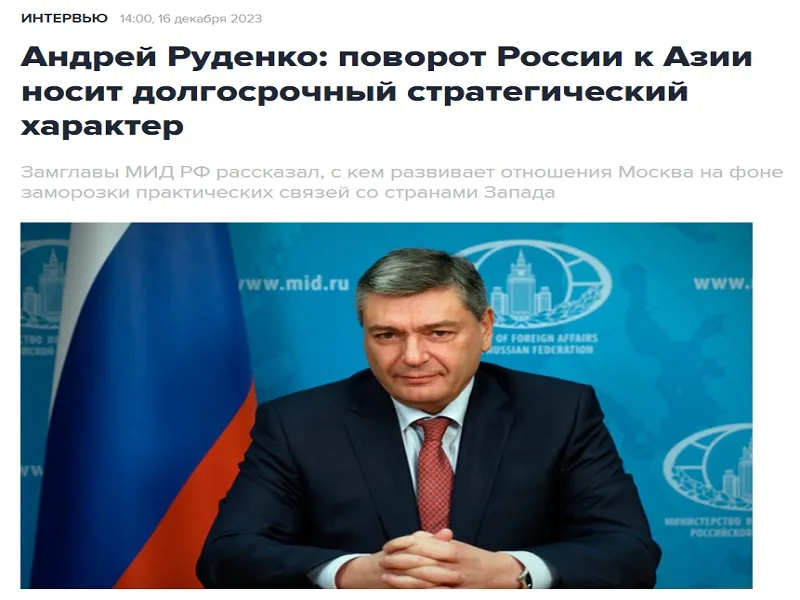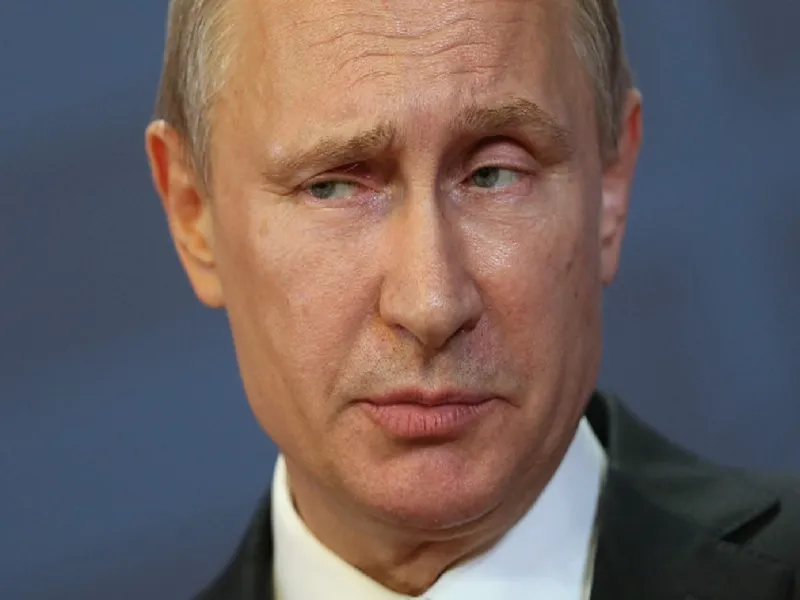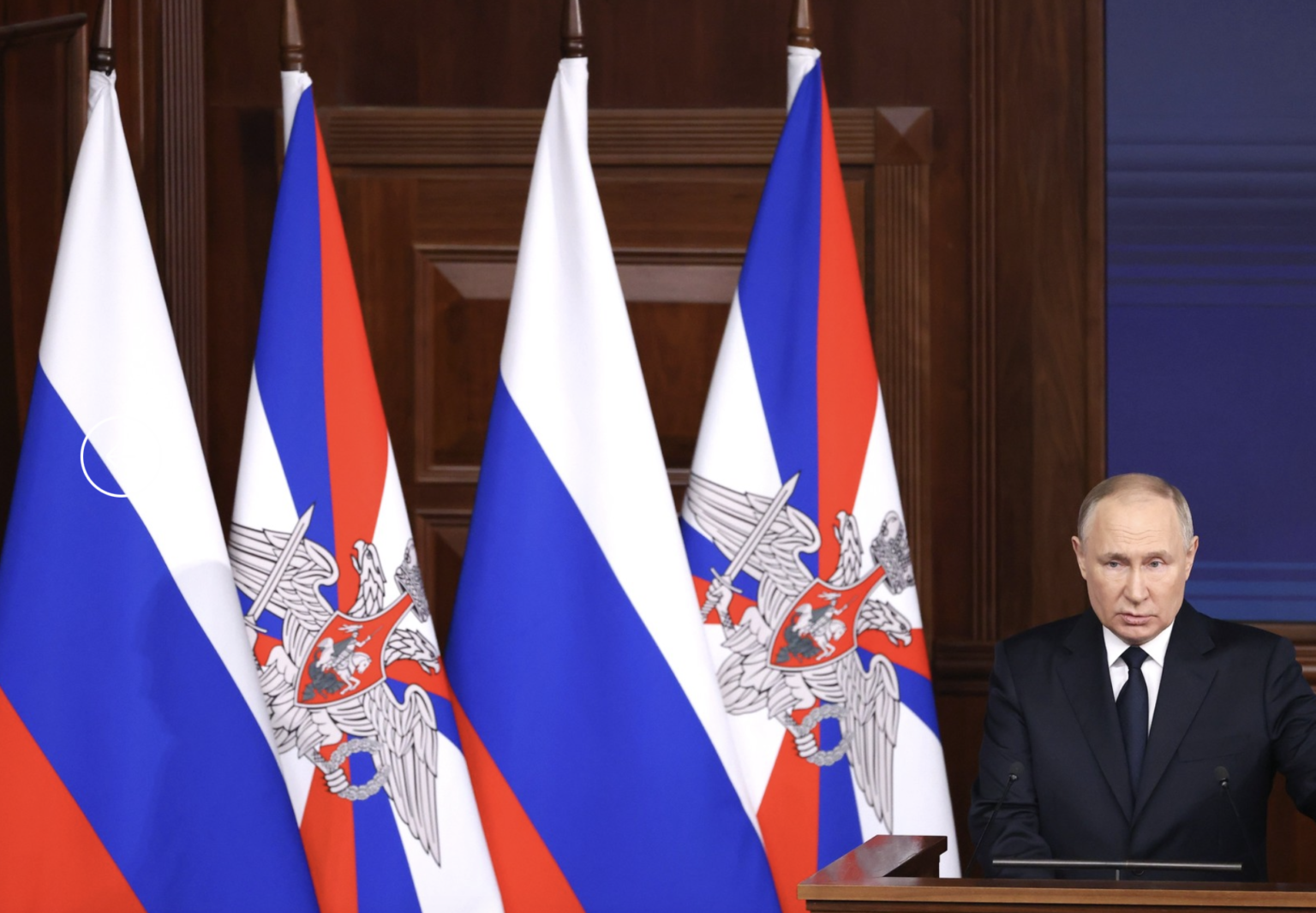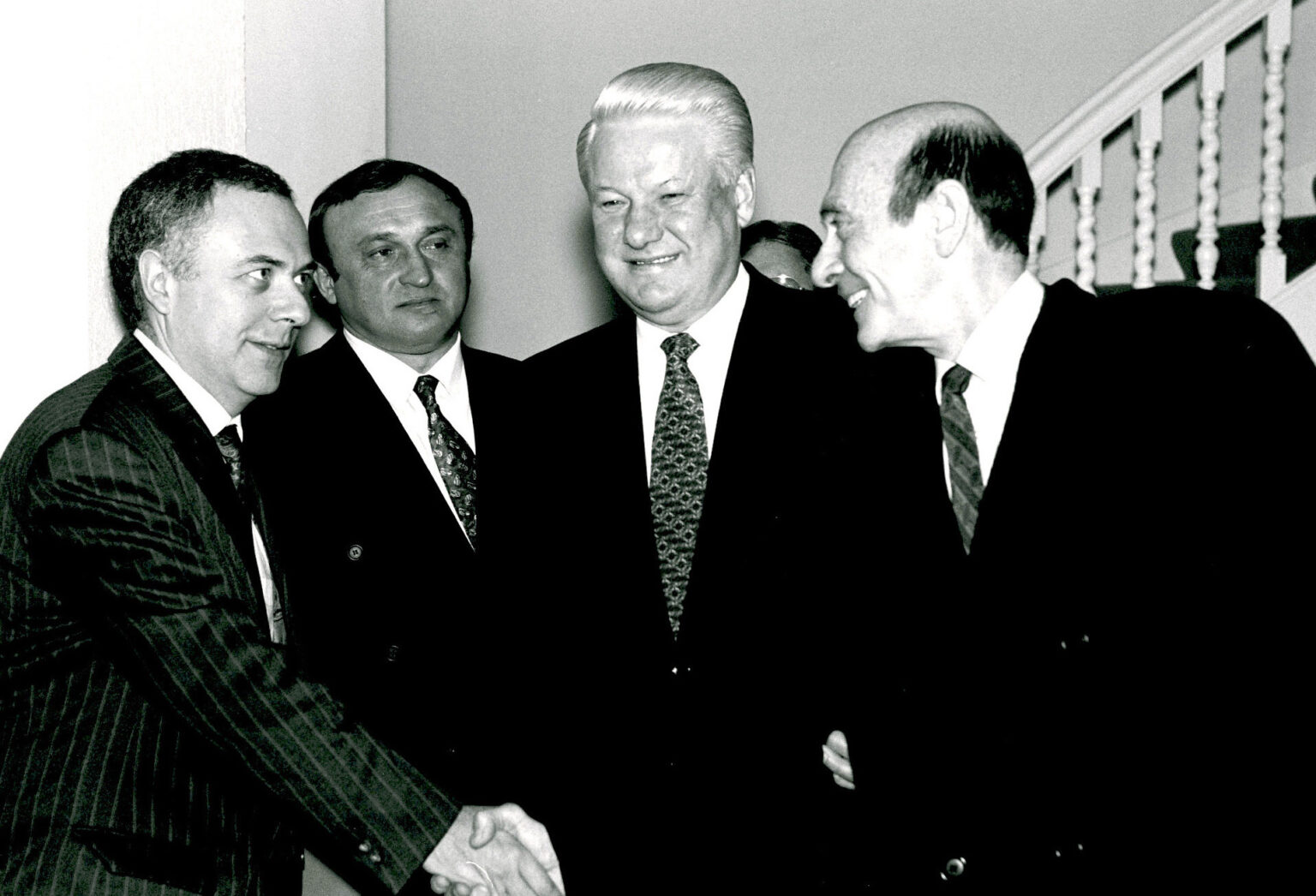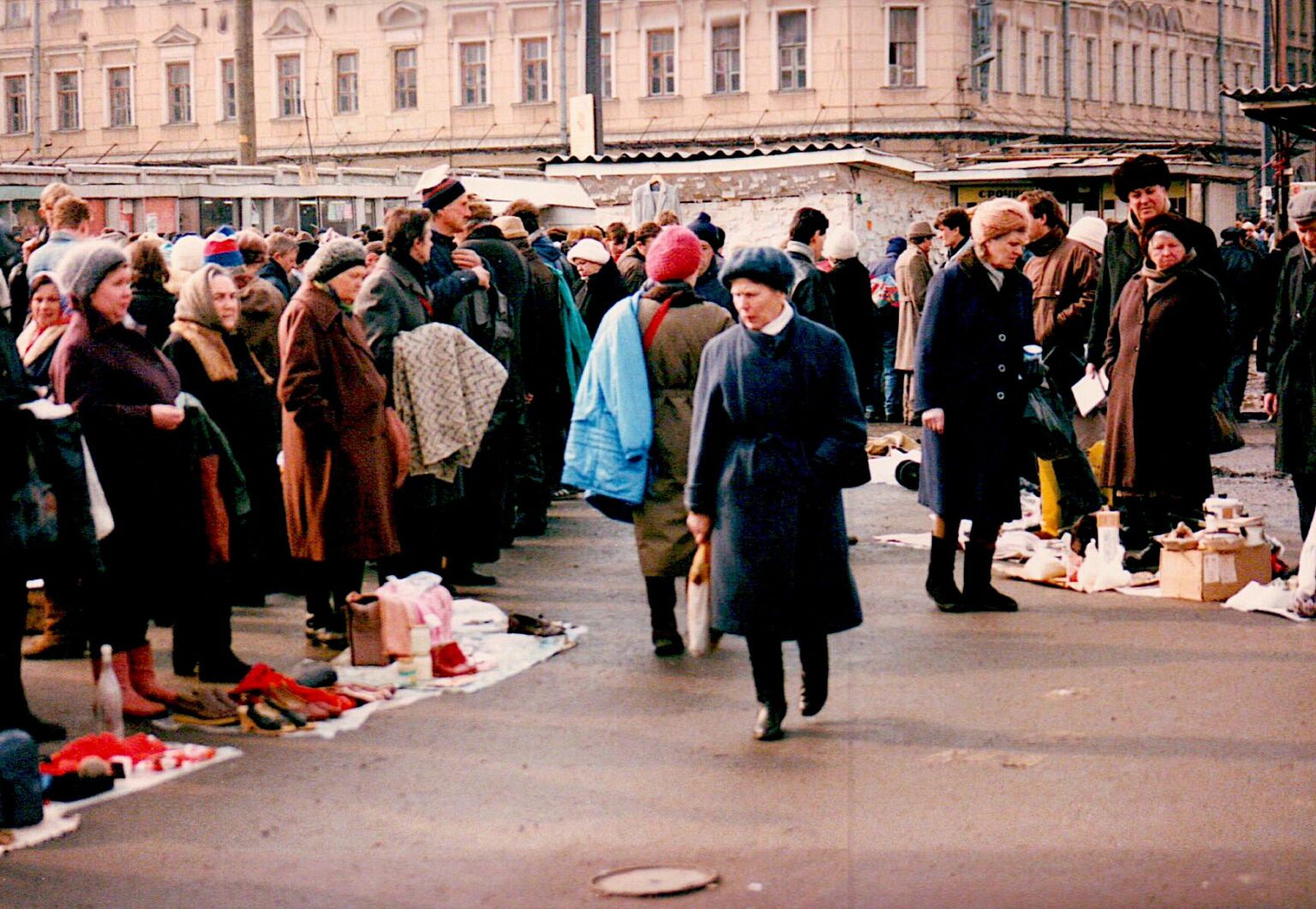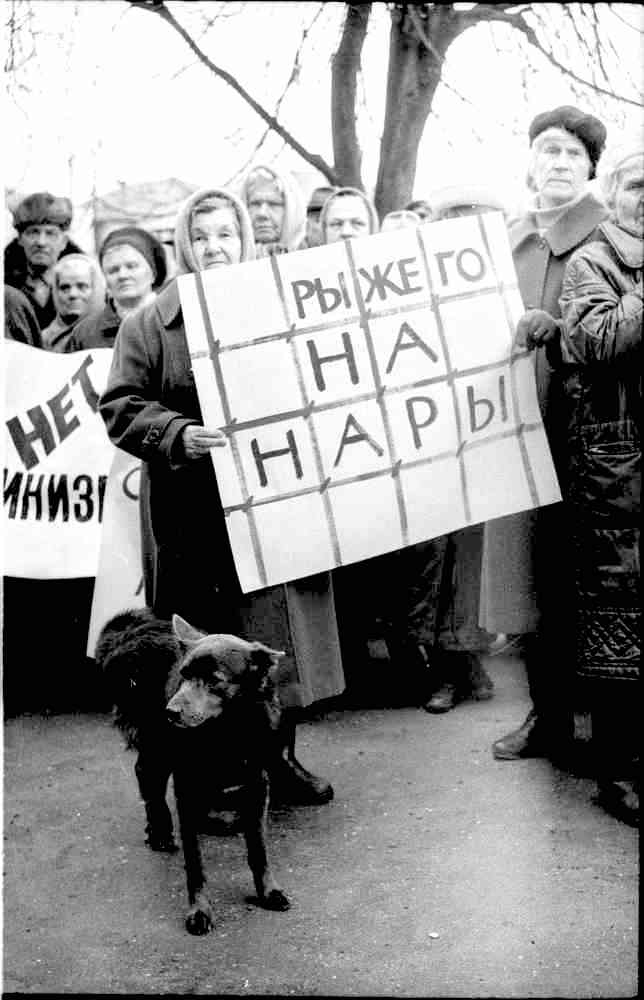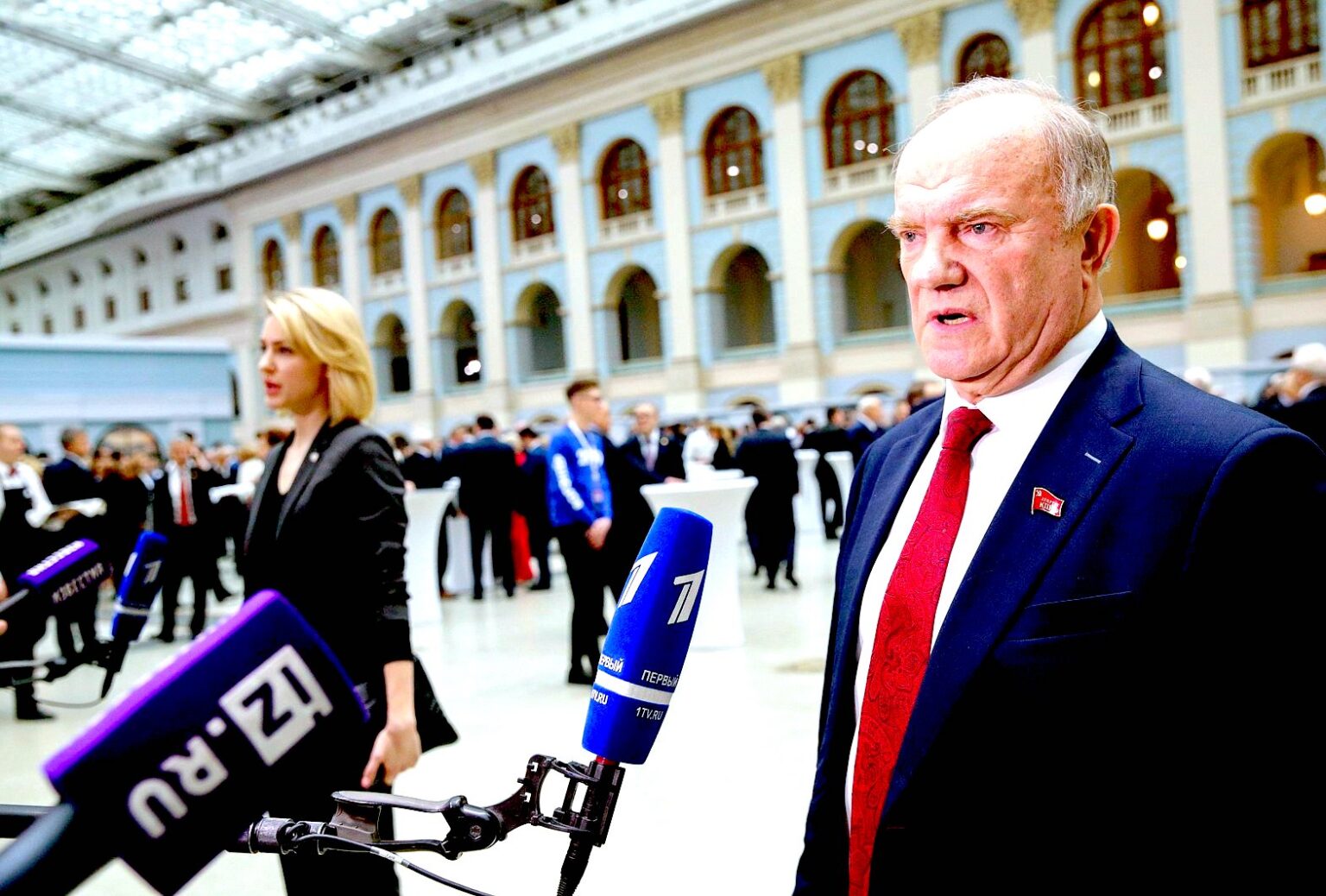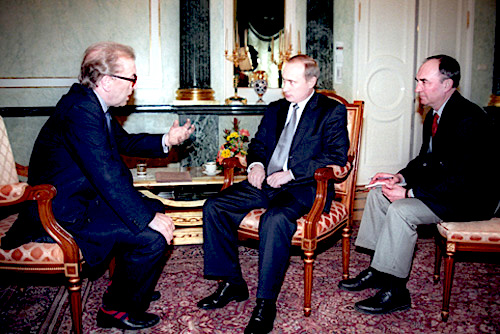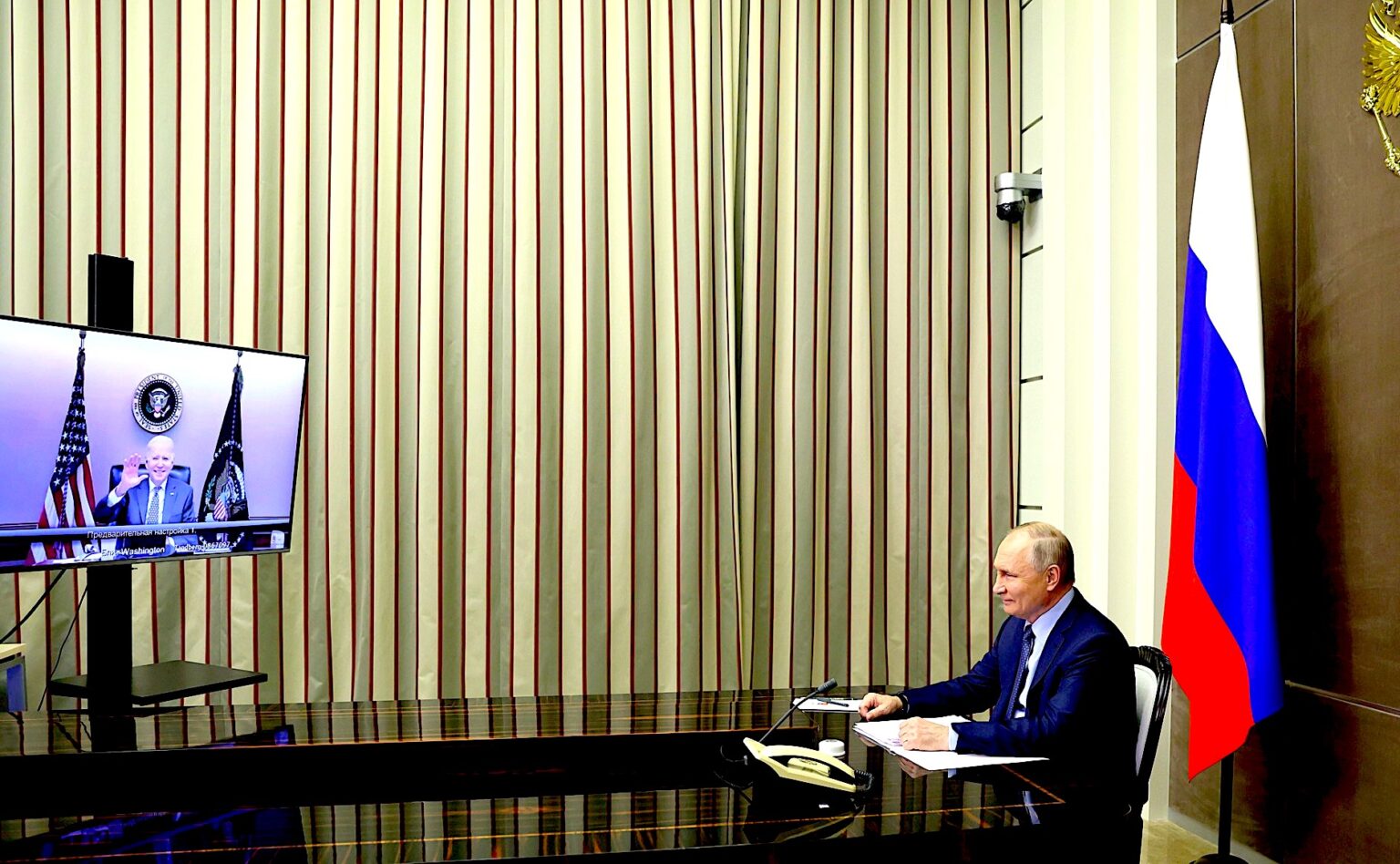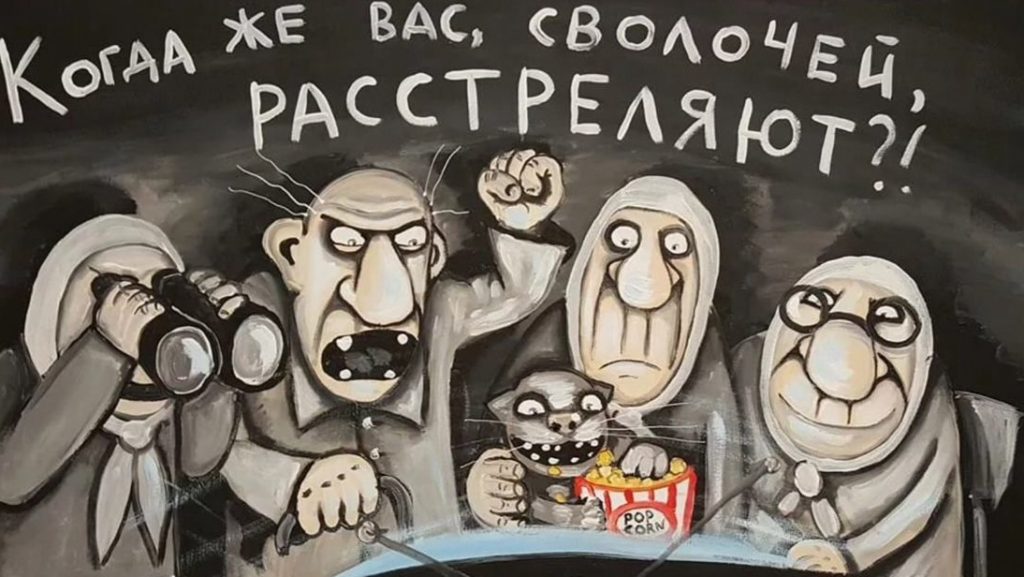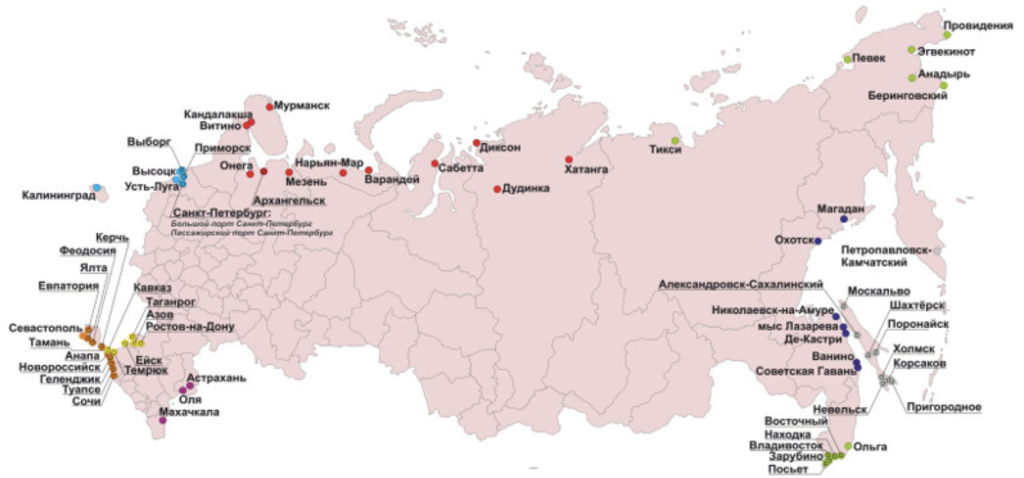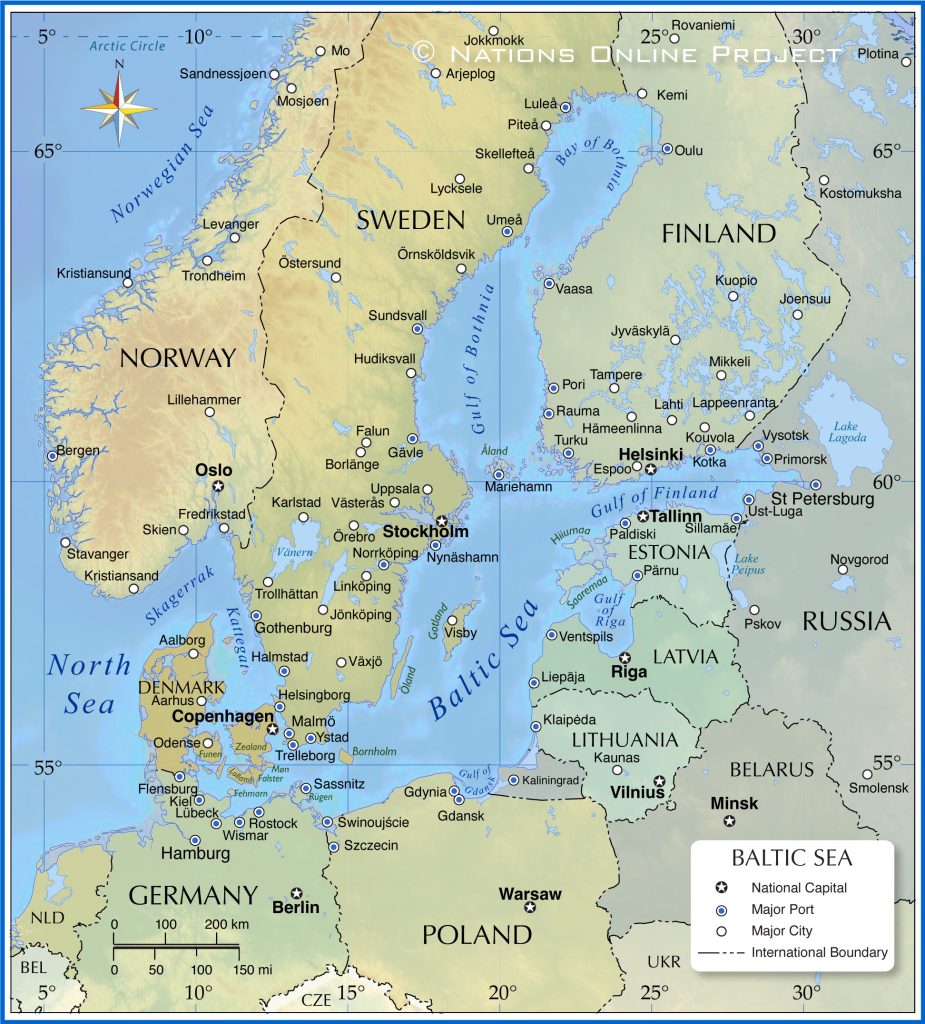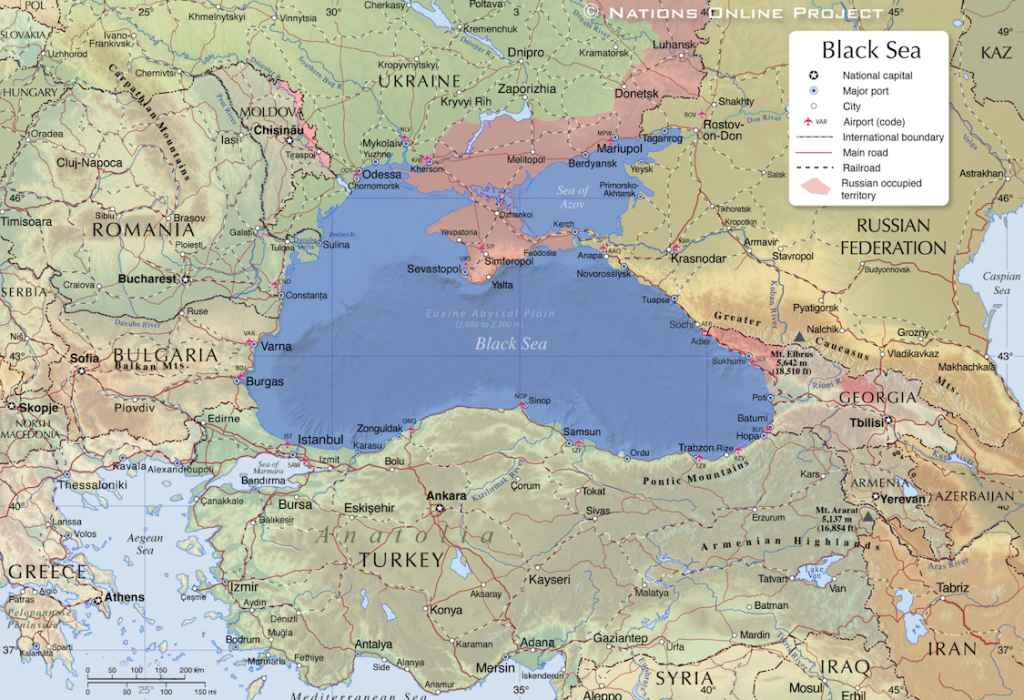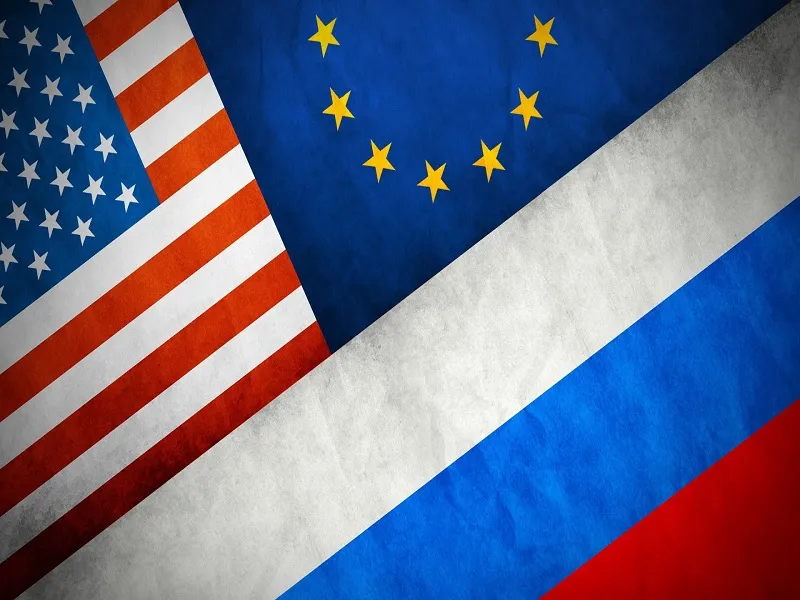DECEMBER 14, 2023
Intellinews, 12/3/23
According to the latest polls from the Levada Centre, Russian President Vladimir Putin’s approval rating rose three percentage points in November to 85%, and disapproval slid down two points to 13%.
Separately, another poll conducted by the state-controlled Russian Public Opinion Research Center (VCIOM) reported a small decline in Russians’ trust of Putin: 78.5% of participants expressed their trust in President Putin, marking a minimal decrease of 0.1 percentage points compared to the previous poll. Additionally, the approval rating for President Putin’s job performance showed a slight dip, with 75.2% of respondents indicating their approval, representing a 0.2 percentage point decrease.
Putin is benefiting from the failure of Ukraine to make any progress with its counter-offensive this summer and rising incomes in both nominal and real terms thanks to a tight labour market.
At the same time, the heavy state spending on defence has given the economy a shot in the arm, which is running well ahead of potential.
These positive results are also seen in things such as retail turnover, which is also up in November, and the PMI manufacturing index is still in expansion mode, well above the 50 no-change mark, while unemployment is at a historic low of 3%.
The good news is also reflected in the “is the country going in the right/wrong direction” question, where “right” ticked up 3 percentage points as well to 67%, while “wrong” remained flat at 21%, as more people shifted from “don’t know” to “right”.
Prime Minister Mikhail Mishustin has also seen his credibility rise to 72% in November from 68%, while his disapproval rating remains flat at 21%.
Mishustin has made steady gains since he took office in 2017 with an approval rating of 53% that rapidly fell to a low of 31% in the summer of 2018 and remained under 40% for the next year. But after a four-year recession ended that year and since the start of the war, Mishustin has shown himself to be a competent administrator and has increasingly won over the population for maintaining the standard of living in Russia.
The government has also seen its approval tick up two points to 69%, which is not much of a difference from where it has been for the last year. Even the Duma, one of the most disliked institutions in Russia, has seen its approval rise to 61% with a 33% disapproval rating. The approval/disapproval of the Duma is usually balanced, and often with disapproval outweighing the two.
Regional governors retain their relative popularity with a 72% approval rating, down by two points from October. The governors have seen their approval rise from last year, when their polling numbers were mostly under 60%, but they have not managed to climb to the point where they were challenging Putin’s own popularity a few years ago.
Finally, the share of respondents who think that protests are possible with political demands remains a low 19% in September, well below the 29% recent peak in February on the eve of the start of the Ukrainian war. However, interestingly the figure for those that said they would participate in the demonstrations should they occur was 18% in September, on a par with every other poll for the last few years, suggesting there is a hard-core community of Russians that remain politically committed to opposition to the government, but which is relatively small in size.
The same poll asking whether there would be protests with economic demands, and if the respondent would participate should they happen, came in at 14% and 13% respectively, suggesting Russians are much less dissatisfied with the standard of living than their political freedoms.
VTsIOM also gauged public sentiment towards the Russian government and Prime Minister Mikhail Mishustin. Approximately 49.7% of those polled approved of the government’s execution of its functions, experiencing a 1.1 percentage point decline. Meanwhile, Prime Minister Mishustin’s job performance maintained steady support, with 52.3% of respondents approving.
However, trust in Prime Minister Mishustin experienced a minor drop of 0.5 percentage points, with 61.1% of participants expressing their trust.
In terms of party leaders represented in Parliament, the results were as follows:
Communist Party of the Russian Federation (KPRF) leader Gennady Zyuganov garnered the trust of 32.1% of respondents, marking a 1.7 percentage point increase.
A Just Russia-For Truth party leader Sergey Mironov enjoyed the trust of 29.4% of those polled, experiencing a 0.6 percentage point rise.
Liberal Democratic Party of Russia (LDPR) head Leonid Slutsky received the trust of 17% of participants, encountering a minor decline of 0.2 percentage points.
New People party chairman Alexey Nechayev secured the trust of 7.8% of respondents, noting a 1 percentage point drop.
In terms of political party support:
The ruling United Russia party saw its popularity rise by 1.1 percentage points to 40.9%.
The Communist Party of the Russian Federation (KPRF) experienced a 0.7 percentage point decrease, with its support standing at 9.2%.
The Liberal Democratic Party of Russia (LDPR) saw a 0.4 percentage point increase, with its support also at 9.2%.
A Just Russia-For Truth party witnessed a 0.5 percentage point decline in its popular support, reaching 4.4%.
Support for the New People party decreased by 0.4 percentage points, landing at 4.4%.
https://natyliesbaldwin.com/2023/12/int ... direction/
********
The double standards of pro-Palestinian defenders of ‘freedom of expression’
In recent days, I have been struck by the way ‘freedom of expression’ defending liberals identify a speck in the eye of their generally conservative opponents on the Palestinian issue but are blind to the plank in their own eye, if I may borrow an expression from Matthew on the meaning of hypocrisy.
We have seen in the past week how a House committee hectored the presidents of three leading American universities over the way free speech on campus is being abused to further the Palestinian cause and to make open expressions anti-Semitism acceptable. The media also report on the strong-arm measures that donors to higher education have used to silence free speech on campus by withdrawing financial support to institutions that do not suspend or expel students chanting ‘Palestine from river to sea.’ Recruiters for law firms and other sought-after professional jobs are blacklisting students so identified.
In a prestigious ListServ digest distributed to diplomats and foreign policy experts in Washington a recent article spoke of ‘McCarthyism’ in the way that the powers-that-be seek to root out sympathizers for the Palestinian cause in the Israel-Hamas war.
I share the outrage over the recent flagrant examples of intolerance and denial of the right to a position on the conflict in the Middle East critical of or hostile to Israel’s savage pursuit of ethnic cleansing in Gaza. What I do not share is the belief that this McCarthyism is something new, something recent in American society. And I find it more than ironic that the very same Liberals and Progressives who now plead for free speech on Palestine have themselves been the most intolerant bigots with respect to Russia and its president going back more than 20 years.
I am very pleased that over the past year I have attracted many new subscribers to these pages. However, this obliges me to provide a bit of background on McCarthyism with respect to Russia that I have been writing about all these years. More details are available in my three collections of essays published between 2013 and 2017: Stepping out of Line, Does Russia Have a Future? And Does the United States Have a Future?
*****
From the end of the 1990s, when still on the Yeltsin watch Russia and the United States parted company over the NATO bombing of Serbia and the Kremlin moved out from under a de facto American protectorate, economic warfare with the Kremlin in the energy domain began in earnest. Russia nemesis Zbigniew Brzezinski was enlisted by Madeleine Albright to help set up energy flows to Europe that bypassed Russia. He worked alongside my Harvard classmate Richard Morningstar, who made a fast rising State Department career in the following years as a plotter against Russian gas and oil exports.
In the new millennium, the U.S.- Russia relationship deteriorated sharply following Russia’s joining Germany, France and Belgium in opposition to the planned invasion of Iraq in 2003 that deprived the United States of much-sought UN cover for its forthcoming war of aggression. However, the start of an Information War on Russia that used McCarthyite methods to silence critics of Washington’s Russia policies dates from the spring of 2007. This was the George W. Bush administration’s response to Vladimir Putin’s speech at the Munich Security Conference in February of that year during which the Russian President denounced the United States for seeking to maintain world domination and optimizing its own national security and interests at the expense of all others, Russia in particular.
In the years that followed, there was a steady rise in the anti-Russian mood throughout American society that got full encouragement from the White House. I witnessed this mood in higher education during the 2010-2011 academic year, when I was a Visiting Fellow of the Harriman Institute. The Harriman was then the Russian studies center at Columbia University, as it had been from its founding in 1949.
In 2010-2011, the level of anti-Russian hysteria at Columbia was such that at talks and round tables organized by the Institute anyone raising a question about the statements of the hosted, anti-Putin speakers was immediately denounced as a ‘stooge of Putin.’ The level of discourse at this institution of higher learning had even then been reduced to a kindergarten.
The lead-up to the Winter Olympics in Sochi in 2014 gave free rein to the Russia-haters in media coverage of the wild beasts supposedly roaming the shoddily built Olympic Village. But the hysteria was raised to a wholly new level when the February 2014 coup d’état in Kiev placed in power radical Ukrainian nationalists backed by the United States, the Russia-speaking Donbas rebelled and the Crimea voted to join the Russian Federation. Following the MH17 plane crash that summer, never satisfactorily explained thanks to the U.S. withholding critical intelligence data, the American McCarthyite contagion was passed along to Europe to justify heavy economic sanctions being imposed on Russia by the allies on both sides of the Atlantic community.
At this point, in mid-2014, all ‘dissident’ views on Putin and Russia were no longer tolerated in U.S. mainstream media. Professor Stephen Cohen, who had been the darling of the U.S. television broadcasters in the late ‘90s thanks to his closeness to Gorbachev and the liberal West-loving Russian intellectual stratum, now found himself not merely ostracized by colleagues but blacklisted by major media. I know, because we were in regular contact at the time and he talked about it.
To be sure, there were a few rare exceptions to this blackout. One was the voice of University of Chicago professor John Mearsheimer, who wrote an essay on why the west was to blame for the Ukraine crisis that broke out in the Donbas and for the Russian seizure of Crimea. His article was published in Foreign Affairs magazine in the autumn 2014 issue and created a storm of critical letters to the editor from the foreign policy establishment. A video of his lecture on the same subject posted on youtube by the University of Chicago in 2015 went viral. It is still accessible and has been viewed by more than 29 million visitors to the site.
However, Mearsheimer’s case was the great exception. He was a West Point graduate. He was not a Russia specialist and was perceived as having no axe to grind. Moreover, he had survived an earlier scandal over his authorship of a book that touched upon the sacred cows which only today may be publicly discussed, and then with great care:
The Israel Lobby and U.S. Foreign Policy (2007), co-authored with Professor Stephen Walt of Harvard
But other academics, especially Russia specialists, were not unsinkable like Mearsheimer, and they chose to be silent, to keep their heads down lest they be summarily fired for exposing themselves as ‘Russian agents.’
The lowest point in freedom of speech with respect to Russia may have come in December 2015. It was then that the daily digest of Russia-related articles distributed by email to American universities and private subscribers, Johnson’s Russia List (JRL) published an issue that consisted of 100% anti-Russian articles. JRL re-publishes only what academics, journalists and other experts publish day by day, and on that day in December there was not a single article on Russia and Putin which was not vituperous or fake news. I wrote about this issue in “A Christmas Present to Russia-Bashers from Johnson’s Russia List.” (Does Russia Have a Future? chapter 12)
By the way, I saw the very same dismal, stultifying anti-Russian form of McCarthyism at work in Germany in 2015 when I was a guest of the SPD (Socialists) think tank conference in the Taunus mountains. I described this in an article entitled “2015 Schlangenbad Dialogue: The East-West Confrontation in Microcosm” in Does Russia Have a Future? (chapter 62).
But, as they say, it is always darkest before dawn, and in the new year 2016 we saw that a thousand flowers bloom with respect to expert literature on Russia. Why? Because that was the year of Donald Trump’s electoral campaign for the presidency. Trump said about Putin, about NATO and other holy of holies what ordinary mortals, not to mention timid by definition academics, dared not say, lest they find themselves out on the street, if not worse. Trump singlehandedly took on the McCarthyites in many domains, of which Russian affairs were just one. Trump did unwittingly and without any regard for intellectual freedom what Elon Musk has consciously sought to do with his takeover of Twitter. Take note: both defenders of free speech were-are Conservatives and the free-speech haters were Liberals-Progressives.
There has, of course, been backsliding towards McCarthyism as it applies to Russian affairs under Biden’s Democratic administration. Witness the whole “cancel Russia” campaign. I note that Columbia’s Harriman Institute is today, for all practical purposes, a center of Ukrainian studies while Russian studies are languishing in a ‘de-colonization’ purge of academics and courses.
To be sure, no one in the States today fears a midnight knock on the door by the Feds for questioning about his or her thoughts on Putin and his Special Military Operation. That cannot be said about Canada, where a certain former diplomat in the country’s Moscow embassy and widely read blogger on Russian affairs in the new millennium named Patrick Armstrong was pressured by intelligence operatives to fall silent ‘or else.’ He took their advice and closed his web platform. But then Canada has never had a Trump at the helm.
In closing, for those who want to read an excellent insider’s account of how The New York Times management has consciously trampled on the principles expressed in the founders’ motto “all the news that’s fit to print” and became, as Steve Cohen wittily said, “all the news that fits” its Progressive Democrat biases, I heartily recommend an essay by the paper’s long time Op Ed page editor James Bennett, “When The New York Times lost its way.” https://www.economist.com/1843/2023/12/ ... id=1834944
The complete disregard if not contempt for other sides to an issue is an essential foundation on which today’s McCarthyism is built.
©Gilbert Doctorow, 2023
https://gilbertdoctorow.com/2023/12/15/ ... xpression/
******
Literary geeks will die of anger
December 15, 21:34
Medvedev, who once called for the de-Stalinization of Russia, now not only quotes Stalin’s telegrams to directors of military-industrial complex enterprises, but is also actively mastering the rhetoric of fighting the enemies of the people within the country from the 1930s.
Still, some of our “literary classics” who have been thrown over the border, in the words of Mikhail Bulgakov, are “the most vile scum.” Well, okay, They really don’t like the “political regime” and are against government decisions. This is normal, you can’t please everyone, everyone has the right to their own point of view. But to rejoice at striking your own country, to wish the death of your citizens - this, you know, is completely “out of line”, it is beyond good and evil.
At the same time, they happily receive huge fees for their opuses , for their publication and film adaptation in Russia, collected through payments from the very people whom they openly consider orcs and whom they wish death from Ukrainian drones.
Therefore the most the terrible punishment for them will not be separation from the Motherland, which they sold, not the loss of citizenship, which they do not value at all, but the loss of dough. It is a pity that they did not do this earlier, which I had the opportunity to write about a year ago. They are by no means Nabokovs and are unlikely to be able to write in other languages, like Russian.
Life is, alas, finite. Let them live it away from the country where they once gained popularity. They write without hesitation that they will return as rulers of thoughts and will again be at the zenith of glory. This is only possible if our people erase historical memory and betray the soldiers who died for it. And this will never happen.
So let the literary geeks die of anger in a foreign land and think today about who will look after their graves. There will be plenty to spit on. (c) Medvedev
With minor changes, this material can be easily presented in the Soviet press of the second half of the 30s. How ironic. At one time, liberals had hope in Medvedev. Remember all these “splits in tandem”? and so on. Well, after the start of the SVO, Medvedev changed his statements so much compared to 2011 that, compared to him, Putin looks like an ultra-liberal.
PS. The very idea of depriving these characters of money is not new and has long been supported by the public. So if Medvedev’s threats reach a systematic and more rapid implementation, then this is good, otherwise they have already delayed taking the necessary measures for 1.5 years. Over there Slepakov was planning to make money in Russia https://russian.rt.com/nopolitics/news/ ... n-slepakov He thinks that he will have a ride.. He remains hopeful that the example of Chkhartishvili and Zilbeltrud will lead to a further cleansing of bookstores from the works of collaborators.
https://colonelcassad.livejournal.com/8830738.html
Google Translator
******
About medicine under capitalism
No. 12/88.XII.2023
When going to the clinic, I decided not to contact the State Services (an appointment with a wait of three weeks seems to be designed for the person to give up and go to a paid clinic, because it hurts now, and in three weeks, look, it will be too late!) and moved in the “live queue”, where I learned a lot of useful things. It seems that such, not at all fun, institutions are a kind of social clubs for old people, where you can talk with strangers or meet an old workmate, find out some news... How many stories from life can you hear in line - take and write down material for stories -stories, novels, epics!
For example, I found out that our clinic has a paid department. One guy decided to save time and, for money, quickly go through all the specialists, open a sick leave certificate and urgently submit it to work. But still, he was forced to obtain a final conclusion from his own attending physician. Or in your clinic there is no opportunity to undergo an examination using complex equipment due to its lack or repair - and the doctor recommends such and such a commercial medical center. It has everything you need and the same doctor from the clinic is included!
From conversations I learn that young, talented and compassionate doctors come to our clinic, but are soon transferred “higher up” or go to commercial centers. After all, the life of a physician is full of grueling physical and psycho-emotional stress. There is nothing to eat for one bet, there is no time for two, the doctors joke darkly. If you work hard with double workload (there are two doctors at the rate, but in reality there is only one), then in a short time this abnormal life leads to “burnout.” Moreover, one cannot survive without part-time jobs, although they barely provide a semi-beggarly standard of living in the absence of normal housing, proper rest and the opportunity to improve in the profession. It is better not to start a conversation about pensions with doctors - do not pour sodium chloride on the violation of the anatomical integrity of the integumentary tissues. It is impossible to live on this handout, and most doctors are ordered to work during their “well-deserved rest.”
In the clinic, you understand more deeply that what they say is correct: the causes of illness in one organ are always connected with others. A person has caught a cold, say, in his kidneys, but why? Not enough brains! Ignorance and savagery of the majority of patients is a familiar picture in almost any medical institution. Numerous facts are not without foundation, proving that over time the mass of patients become “chronicles” largely due to their narrow-mindedness and laziness. We’ve heard something about preventive examinations, hmm; about physical education - mmm, in the know; about proper nutrition - hmm, we can guess, but... who will force us? Maybe yesterday it was too early, maybe tomorrow it will be too late, but today there’s definitely no time! Indeed, no one suffers from philistinism more than the philistines themselves. And medical institutions are precisely those places where the phenomena of life without the veil of everyday life are exposed to the average person. Only when something happens to health does a person begin to realize the disastrous state of affairs with domestic medicine! And even when this obvious thought no longer requires proof, not everyone succeeds in connecting it with the cause - capitalism.
Yes, I really want to defeat all ailments and diseases with the help of decoctions, tinctures, potions, elixirs, powders, tablets, drops, ointments and other miracle drugs! The benefit of advertising remedies for all ills and injuries is overwhelming. Funny episode. I’m sitting talking to a woman, and she’s holding the Oracle in her hands. Then the sister comes out of the office and, looking at the newspaper, caustically remarks: “Oh, these clairvoyants, yes, psychics. Why didn’t they notice Covid in 1919?”
According to doctors, it is becoming increasingly difficult to work with people - there are many patients, but fewer and fewer people. Nightmarish queues - there are not enough specialists, no matter what! Exhausting appointments - the doctor, like an automaton, is obliged to examine, make a diagnosis, schedule treatment and fill out a card for the person seeking help in a quarter of an hour! Rudeness and swearing are commonplace, and in most cases patients do not trust doctors [1]. True, for the time being, sincere gratitude from patients for treatment, and sometimes even for saving lives, remains an “outlet” for doctors. In many ways, it is this that allows you to stay in the profession. But young people are running [2] in all directions: into a narrow specialization, into diagnostics, into cosmetology, into plastic surgery, into the commercial sphere. But in the latter, at least you understand why you are suffering. Judge for yourself, which of the young professionals can be inspired by the career “started from scratch and reached poverty with hard work”?
Personally, the neurologist (we had a heartfelt conversation with him, a man about 40 years old) showed me his salary slip - the rate was 9,000 rubles! This means that in the Russian Federation a person with a higher education is given a salary below the minimum wage! Of course, there are additional payments - for specialty, for experience, for harmfulness, there are bonuses, but the strategy itself - when the salaries of doctors are tied to the number of patients on appointment - cannot mean anything other than the prospect of working harder and harder so as not to fall into need. Do you think that accepting a stream of patients and filling salaries with quantity do not lead to a loss in the quality of medical care? Or should a doctor at a state medical institution have a decent, guaranteed salary that reflects his qualifications and efficiency?
Without thinking, one might imagine that the quantitative approach is correct. After all, wages should depend on the amount of work done? And if doctors do not work or perform their functions poorly, then there is nothing to pay them for? But it turns out that the system itself forces doctors to do everything “hastily, in a lump, and in a heap”! To make money, don’t continue to treat people a little and you will be guaranteed an increase in visits. Well, if you’ve cured yourself and the patient doesn’t come, it means you’re doing a bad job, gentlemen. Is that how it works? On the market - yes. Moreover, the top management of the clinic accrues salaries of up to 300 thousand. But since almost all doctors are politically illiterate, disunited, hypnotized by bourgeois propaganda, they either “go to house managers” (from a friend, the concierge at the entrance gets 19,000 rubles, without much hassle), or their patience and work will lead to a lying stone.< /span>
Only a few become real professionals. They are pulled “up” to medical institutions in big cities, capitals, and elite private clinics, but even there, scientific, systematic, methodological work with personnel is not carried out. As a result of all these problems, a considerable proportion of medical staff are dissatisfied with the country’s leadership, in particular with state policy in the healthcare sector. And the liberals, imposing the thesis about bad capitalism in the Russian Federation, sigh: “The salary of a doctor in the USA is hundreds of thousands of dollars a year, dozens of nurses, and in Russia... We, of course, all wanted perestroika, glasnost and a good life, but in the end we got bandits in power and an irremovable king.” Only they forget to say that the high salaries of doctors in the USA are due to two things: their deliberate shortage (in America there are almost half as many doctors per capita) and the monstrous cost of education.
Taking advantage of the social scientific incompetence of the masses, who do not know that the right of private property in itself is a right of abuse, liberals “forget” to add that their fight against the Putin regime is a banal scramble for a place at the budget trough. That capitalism, under any president, prime minister, or chairman, inevitably leads to crises of overproduction, which are resolved through war. There is nowhere to improve capitalism, because it is based on the task of obtaining maximum profits at minimum costs. A market economy can only exist in conditions of constant expansion, through the seizure of new markets, through the robbery of third world countries, including through unequal exchange. In 1991, Russia, having “fitted” into the world market already divided by transnational corporations, even in theory could not lay claim to the top in the system of world imperialism. And if the prospect of capitalism is a third world war or an environmental disaster, then the apologists of “good” capitalism have nothing in common with the fighters for progress.
The main and only hope of humanity, including people in white coats, is to take the communist, scientifically grounded and morally justified path of development of society. Only in this case will doctors be able to claim a settled life and successful development in the profession, not by providing services, but by truly serving society, reducing the morbidity and mortality of people, prolonging and saving their lives. To do this, it is necessary to organize a political class from the scattered mass of hired workers, which, under the leadership of its Communist Party, will take power, and eliminate capitalism, as was already done in our country in 1917.
Advertising the slogan “A healthy nation is the main goal of the state and the main task of public medicine,” the Ministry of Health is emphasizing positive changes in healthcare compared to the “holy 90s,” when medicine was free, and syringes, bandages, medicines, examinations and operations were the opposite. :
over the past decade, infant mortality has decreased significantly in Russia [3];
little by little, the system of sanatorium and resort treatment is being revived in the Russian Federation, allowing free rehabilitation or supportive procedures for incurable diseases;
a program for the modernization of clinics, outpatient clinics, and paramedic and obstetric stations is being implemented.
Nevertheless, the shortcomings of market medicine are glaring: unprofessionalism of doctors, lack of beds [4] and modern equipment, unsatisfactory amounts of funding, when funds for the treatment of children are collected via SMS; who agrees that this is a sign of a healthy and prosperous society? But staff shortages, increased workload, inequality in access to care, lack of funding [5] and other ills of market medicine do not bypass “developed” capitalist countries. It is known that in the United States, due to financial problems, 600 rural hospitals have been closed this year; many mid-level health care workers live in vans in clinic parking lots; denial of assistance to debtor patients is widely practiced, while it was revealed that the federal Modern Vascular network, on the contrary, imposed unnecessary operations on solvent clients, deceiving them; The average waiting time for an appointment in the United States is 26 days [6].
Marx noted that illness is a life constrained in its freedom, and the quality of a person’s life directly depends on the quality of social relations. Consequently, health is determined by working conditions, rest, the degree of satisfaction of the physical and spiritual needs of the masses. The health of a nation is a state of complete physical, mental and social well-being of people, and not just the absence of disease. Since the essence of a person is the totality of all social relations, his health or pathology reflects the circumstances of his social life, proving that the nature of health care is determined by the social structure of society.
In this context, Soviet healthcare (known abroad as the “Semashko system”), especially before 1953, was a public good, whose quality and availability were guaranteed by the dynamic movement of society towards mature communism. The Soviet doctor, satisfying the need to protect the health of citizens, indirectly influenced the economy, social relations, and the spiritual life of society, guided by the principles of science, gratuitousness and universal accessibility of medical care. It is no coincidence that the World Health Organization recognized Soviet medicine as one of the best in the world, and our medical scientists occupied leading positions in its expert advisory committees and in other international medical organizations.
Russian healthcare is based on the adoption of the Western model of budgetary insurance medicine as economically feasible, expressed in cost characteristics and considered within the framework of marketing relations. The “health market” in the Russian Federation is regulated in such a way as to give people the prospect of leading an unhealthy lifestyle for as long as possible. This is beneficial, firstly, to manufacturers, intermediaries and suppliers of tobacco, alcohol, other drugs, junk food, etc., and secondly, to manufacturers, intermediaries and suppliers of medicines, medical equipment, and sellers of medical services. An unhealthy lifestyle as a consequence of the cult of the “golden calf” sacrifices the development of society [7] to consumerism, when people’s self-esteem is a reflection of the amount of benefits received. With market “ideals,” the ruling class indulges the animal part of human nature, encouraging envy, greed, narcissism, and opportunism. Marketing also relies on this - in order to sell something unnecessary, you need an individual who is intellectually disarmed. A sort of eternal teenager with vague ethical standards, thinking only about himself, existing only for himself. Sooner or later, unsatisfied passions and unfulfilled dreams cause prolonged dissatisfaction with oneself, psychosomatic disorders, and a decrease in natural immunity. Not reaching the glossy standards of elegant life, people fall into obsessive experiences of their own lack of demand and rejection in various social contexts.
Having elevated the act of consumption to a synonym for freedom and existing according to the maxim “after us there may be a flood,” the oligarchs and the liberal intelligentsia serving their interests, filled with aristocratic arrogance, despising the undereducation of the masses, their material poverty, do not want, and are not able to understand that people are tired of injustice, inhumanity, from a worldview hostile to Russian culture: “everything that is not for sale is an atavism of communal consciousness.” This fatigue, despite the fact that it is painfully pleasant for the masses to consume and decompose, is a wake-up call for the exploiters. Of course, negative emotions, as a reflection of the third-rate nature of market life, are not the cause of illness at all, but they definitely affect people’s health. Due to private property, which gives rise to ugly relations of venality and the inescapable stress of medical workers, alienated from the results of their work and humiliated by the fact that, by serving a private owner, they lose the opportunity to serve society, doctors appear who are able to bargain with the dying, although the essence of a doctor is to save lives and people's health. The other side of the alienated labor of doctors is insolvent patients, in whose actual cure under the conditions of commercialized medicine no one is really interested.
The Russian healthcare system [8], divided into paid and conditionally free parts [9], despite the declared “ideals,” has as its main goal not the preservation of health, not to mention the social well-being of the nation, but the expansion of the medical services market [10].
The reform [11] of the public health care system has turned the once trusting relationship between doctor and patient into a market one, making it profitable to have sick people rather than healthy ones.
How can doctors protect their patients, for example, from alcohol, tobacco, overeating [12], and encourage them to exercise regularly? Hence, the pharmacological dependence [13] of the masses, accustomed to various kinds of drugs on the principle “just to sell,” is growing. Despite the risk of overdoses and side effects, there is a growing trend towards self-medication using traditional medicine prescriptions [14]. They say that in the old days people got sick much less often... And here we can agree, they truly got sick less often - most often once in a lifetime!
It is no secret that in the Russian Federation, the more subsidized a federal subject is, the more difficult it is to receive timely and high-quality medical care on its territory. There are fewer opportunities for treatment in private clinics in the province. Of course, even in rich regions of any capitalist country, this damned commercialism in medicine (if you want to be alive and healthy, pay!) does not disappear anywhere, but people strive to get referrals to medical institutions in larger cities [15]. For example, in our country, it’s better to go to a hospital in a neighboring region, where the quality of service and the percentage of successful operations is higher... Or you shouldn’t go to such and such a commercial medical center in our city because local certified farriers there can ruin you for your money your health...
While comparing metropolitan and provincial medical institutions, I remembered how in 1998-1999. At one large and wealthy industrial enterprise in Naberezhnye Chelny, a Kazan medical “landing force” landed. A preliminary examination quickly, without any additional tests, resulted in a referral for surgery in Kazan. There is a multi-story building, state-of-the-art laser equipment and the smell of carbolic acid everywhere in the corridors! This double operation cost me 1200 rubles [16] for 2 days within a month. In general, the queue for quotas (operations that are carried out at the expense of the federal budget) can last for many months. But the most painful thing is to wait and catch up...
*
Finally it’s my turn...
The young doctor does not dare give me a referral for a radical solution to my problem; she limits herself to prescribing potent and expensive medications. Okay, then I’ll go to one well-promoted medical center. From a conversation with a work friend, I learn that he had a successful operation at this center by a professor from the capital of a neighboring region for 130,000 rubles. I have already been to private medical centers: always clean, cozy, stylish, helpful, smiling staff, etc. However, it turns out that the preliminary examination costs 6,000 rubles and the queue is already booked for a month in advance! Then, on the advice of friends, I decide to go to another medical center.
Signed up. Came at the appointed time. Paid 1,500 rubles. Nothing special: the amount of specialized medical equipment is no more than in a regular clinic; the visiting doctor collects anamnesis, I answer briefly; the nurse carries out the necessary manipulations; I am undergoing research using equipment. But I don't learn anything new. They repeat the same assumptions that I have heard before. At the same time, the visiting specialist is surprised: we live in the 21st century, but my problem has not been solved! Expressing doubts about my difficult case, he suggests going to their main medical center for additional examinations. According to him, the operation is scheduled there within two days for 80,000 rubles, but additional tests and conclusions will be required, and how tedious it is to get them again (they are valid for 14 days). It turned out to be beyond my strength!
There was a third option left - to undergo additional examination in yet another (the third medical center) for 1,000 rubles, which cooperates and refers the operation to the metropolitan medical center of the third neighboring region. For me, the following picture-situation began to appear and become clearer: in our large industrial city there are some kind of branches of several metropolitan medical centers in neighboring regions, where leading specialists come, conduct paid examinations and consultations and perform simple operations, and in difficult cases they refer them to their main centers . The conclusion is obvious: the growth of paid medicine reduces the availability and quality of conditionally free medicine, since paid services replace the same free tests and conclusions provided within the framework of public medicine. People are forced to pay for medical care twice, because the employer has already transferred 5.1% of their salary to the health insurance fund...
After all these adventures I went to the floating base. There I told my friends and comrades everything, and someone advised me to take out a loan for treatment. No! For credit slavery is wage slavery squared, and mortgage slavery is wage slavery cubed! Well, when asked how you will be treated then, paid or free, I answered with a story about Soviet plasters. They say they came in two types: non-stick and non-tearable. So it is here. If you go to a conditionally free organization, then often, except for a prescription with the saying “people don’t live with such illnesses,” you can achieve nothing: there are no specialists, no equipment, the people in charge just shrug their shoulders - some are gone, but we’ll cure those! You go to a paid institution, and often there is still the same conditionally free doctor, but he already prescribes a lot of tests and examinations, plans operations, promises rehabilitation - you can’t add up the price!
What to do?! Where can we get a new People's Commissar Semashko, under whose leadership an advanced health care system free from the taint of profit will be created anew? In which scientifically based plans will be implemented for the quality and quantity of medical workers, pharmacies, clinics, hospitals, sanatoriums, dispensaries, medical schools, universities, research institutes, academies, in order to cultivate the physical and spiritual health of the builders of communism!
However, all this is possible only in the conditions of the first phase of communism, so everyone who is not lulled by bourgeois propaganda, not lulled by hopes for fair capitalism, should not reconcile with the circumstances, but fight against them. Of course, this can be done productively only under the leadership of an authoritative communist party of the Lenin-Stalin model, which, alas, does not exist yet! But everyone who is ready to rid society of the pathology of private property is obliged to do everything in his power so that the party of scientific centralism shines to the joy of all those wandering in the darkness of their petty interests. Including doctors.
Despite the resistance of the medical community to the pressure of those in power, the patient in Russia still turns into a client, and doctors into service-providing personnel. Undoubtedly, the painful bliss of market madness “dulls and breaks some, but enlightens and strengthens others” [17]. Communists do not demand that doctors heal society from the market, but they are confident that every leading minister of the panacea is able to overcome the moral oppression of capital, protect themselves from consumer extremism, and preserve their true humanity in the desire to live according to their conscience. So that in the future the best of them can hear addressed to them:
“You are an honest person, therefore, with us... This is the logic of the revolution!”
K. Neverov, with the participation ofD. Nazarenko
12/11/2023
[1] In 2020, the Public Opinion Foundation reflected the confidence of 49% of Russians that things are bad in medicine, and 10% of the population are completely satisfied with our medicine. It is curious that in 1989, only 10% of Soviet citizens expressed dissatisfaction with the quality of medicine.
[2] The country has one and a half times fewer primary care doctors and almost half as many nurses as needed.
[3] In 1905 in the Republic of Ingushetia there were 273 deaths per thousand births, in 1991 in the USSR - 21.8, in 2020 in the Russian Federation - 4.5. In this indicator, we are superior to the United States and a number of European countries.
[4] According to Rosstat, compared to 1990, the number of hospital beds in Russia decreased from 2.03 million to 1.1 million.
[5] Until the end of 2024, within the framework of the national project “Healthcare”, 1.7 trillion rubles are allocated to expand medical prevention, reduce mortality, and eliminate personnel shortages.
[6] https://inlnk.ru/PmkZK5
[7] Consumption studies in the USA showed that in the period from 1966 to 1996. The level of well-being of American citizens increased by one and a half times, and life satisfaction fell by half. https://rg.ru/2013/07/28/potreblenie-site.html
[8] Russian medicine employs 1.8 million people, of which over 700 thousand are doctors.
[9] “The Russian Federation has a confusing system of financing medical institutions and services. In our bourgeois country, healthcare is completely criminally classified as an issue of local importance. The federal government funds federal institutions (the largest hospitals) and medical research institutes. Regional authorities finance institutions of regional status (regional, regional or republican hospitals). The rest, including the ambulance, is maintained by the municipal authorities. The federal government allocates subsidies to the local level, but this does not rid the country’s healthcare system of the obvious uneven development: richer regions receive higher funding. Thus, it turns out that the country is artificially divided not only by high prices for transport and uneven economic development, but also by uneven medical care. It’s much better to get sick in Moscow than in Kalyazin, Ladoga or the village of Alexandrovka. From here we see many glaring things - such as the lack of medical facilities, doctors, beds and equipment in most areas" (https://prorivists.org/38_medicine)
[10] https://goo.su/fJJES
[11] Russian healthcare reforms in the form of continuous “optimizations” included, in addition to the transfer of free medicine to “single-channel financing” through compulsory medical insurance funds, the closure of “unprofitable” medical organizations; consolidation of a number of hospitals and clinics; staffing reductions; purchase of the latest medical equipment; changing the order, procedures and standards of “service” for patients; transfer of some medical services to the paid category; new procedures and criteria for assessing the “efficiency” and “quality” of medical institutions, professional competence and qualifications of doctors; changes in the remuneration system for medical staff (“incentive” payments); increasing administrative pressure on medical service providers, etc.
[12] The less we eat unhealthy food, the less we crave it.
[13] In the countries of the “golden billion”, up to a third of medicines are intended to compensate for mental disorders of the population.
[14] When people who live on average 70 years are treated with prescriptions from people who lived on average 50 years.
[15] For example, Moscow’s gross regional product is 2.1 times higher than the Russian average. Healthcare costs for residents of the capital are approximately 1.5-2 times higher per capita.
[16] Approximately two “average” salaries in the country. https://www.consultant.ru/document/cons_doc_LAW_33937/
[17] V.I. Lenin.
https://gilbertdoctorow.com/2023/12/15/ ... xpression/
Google Translator

